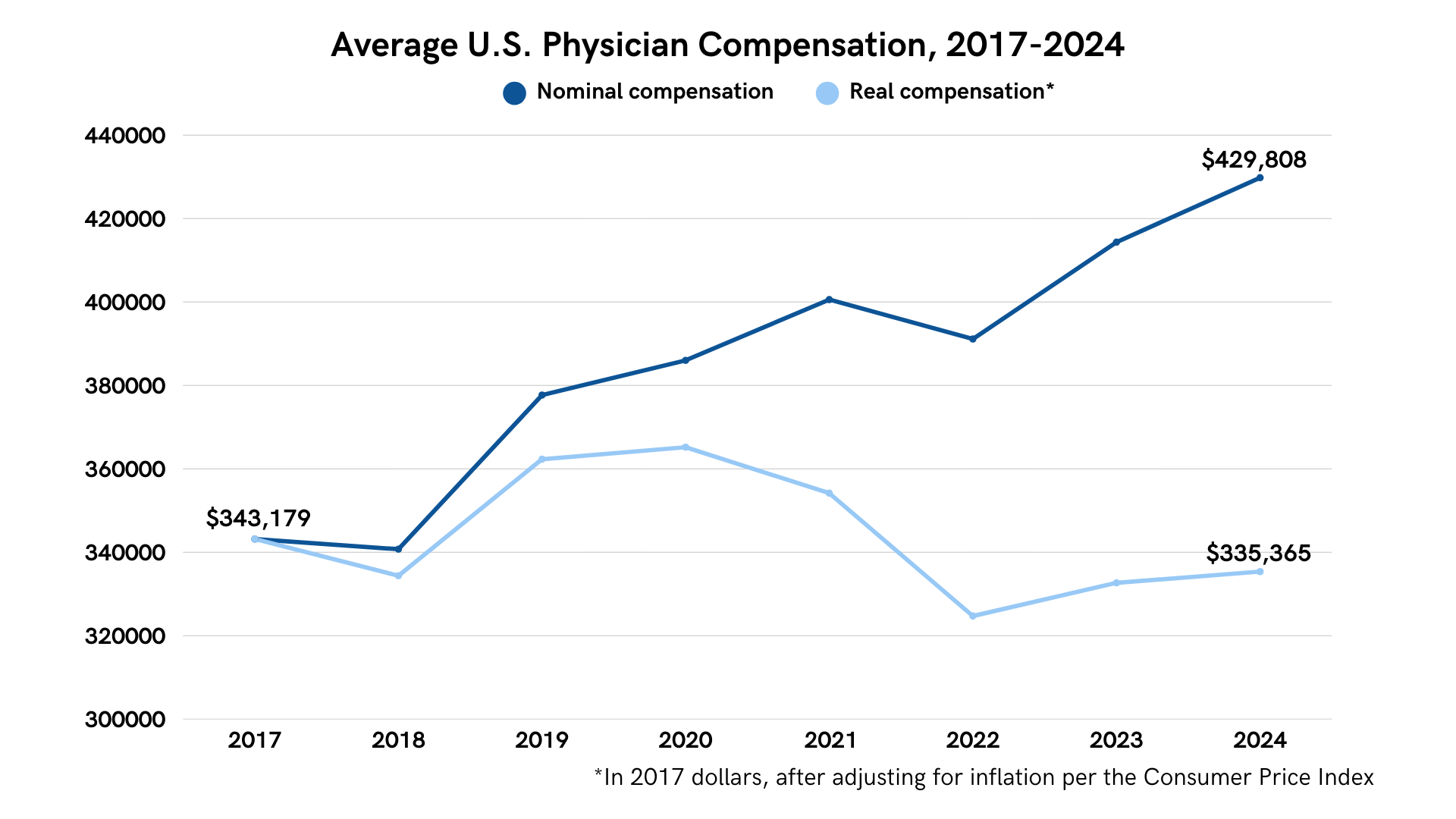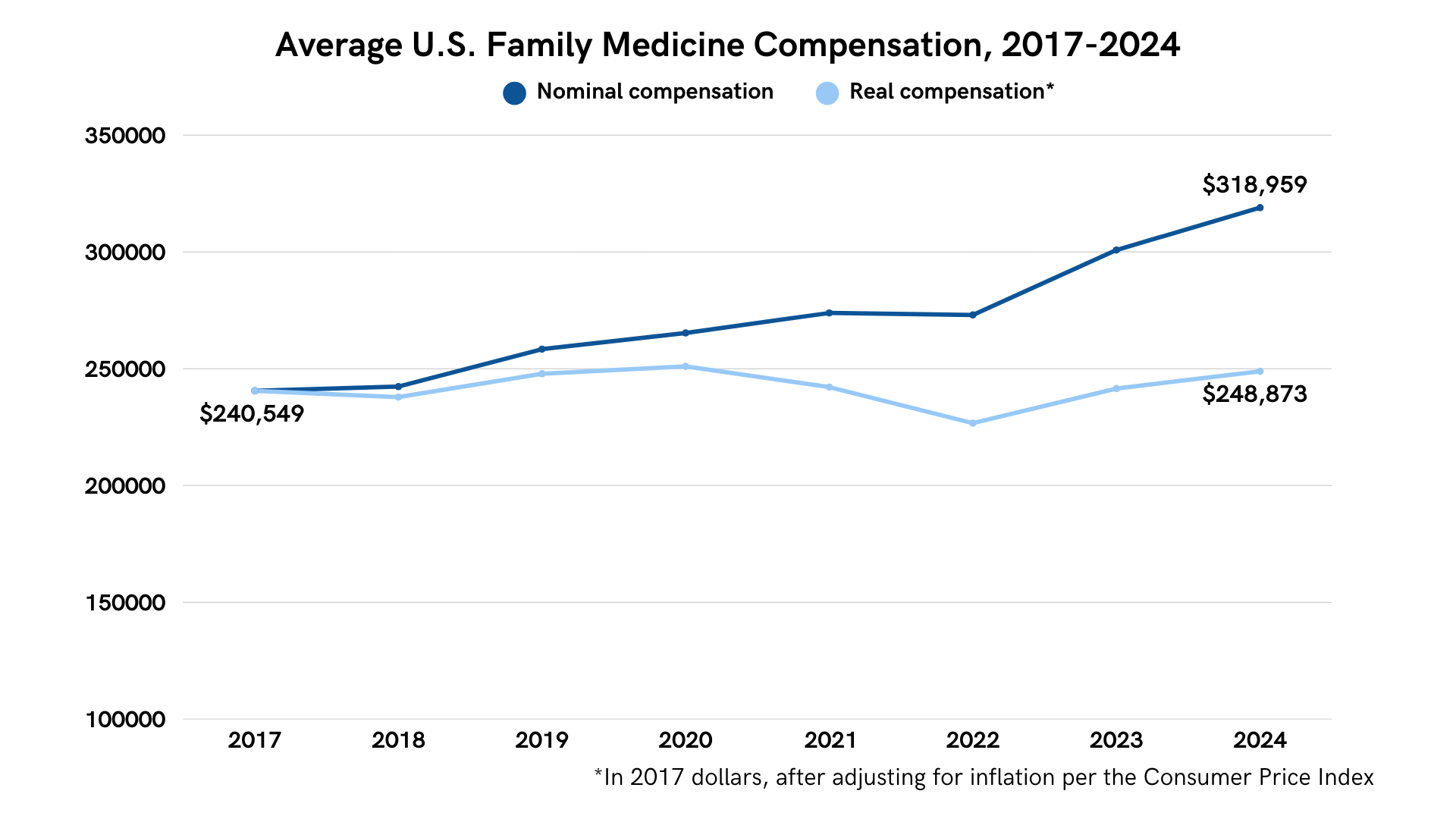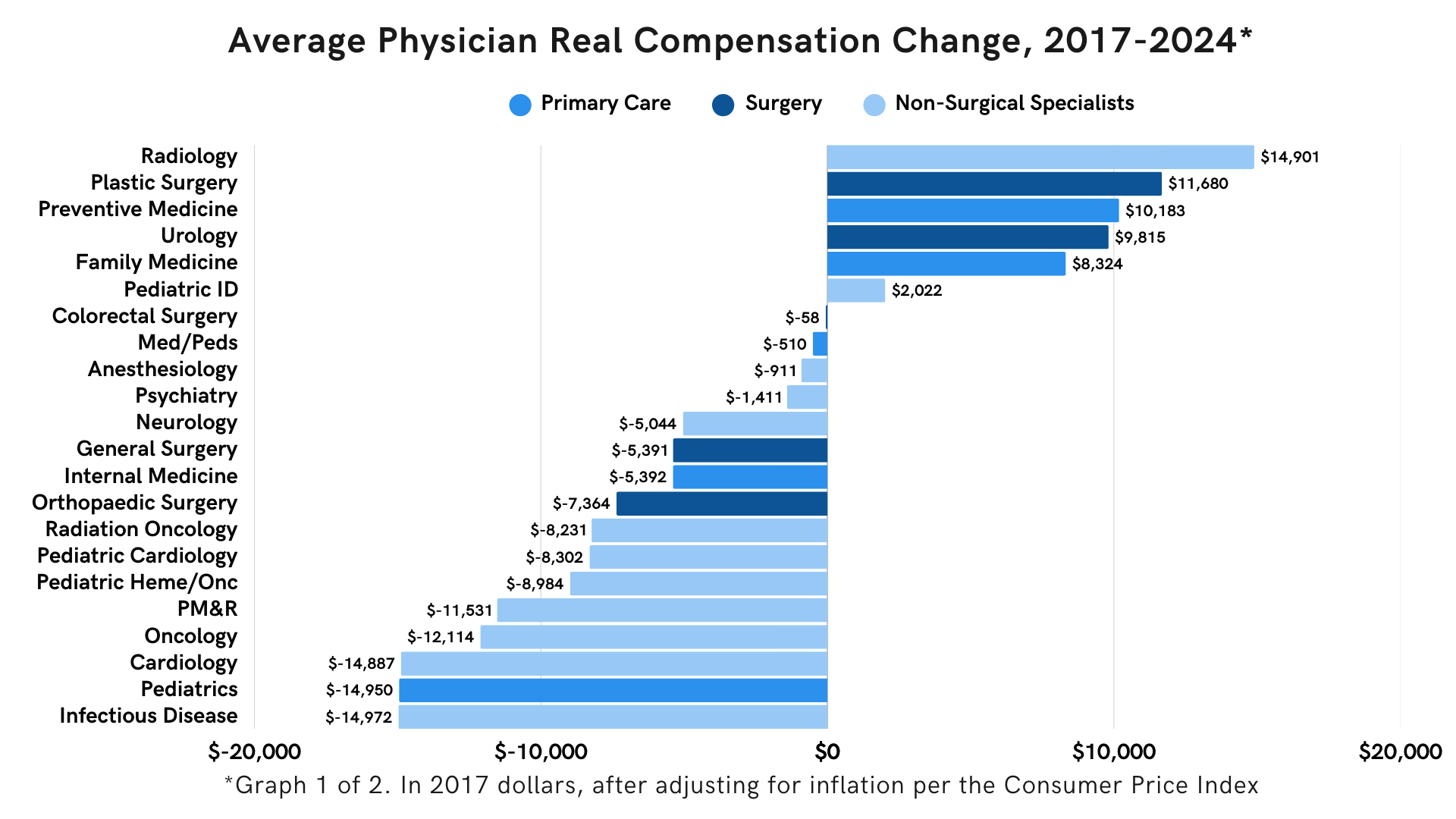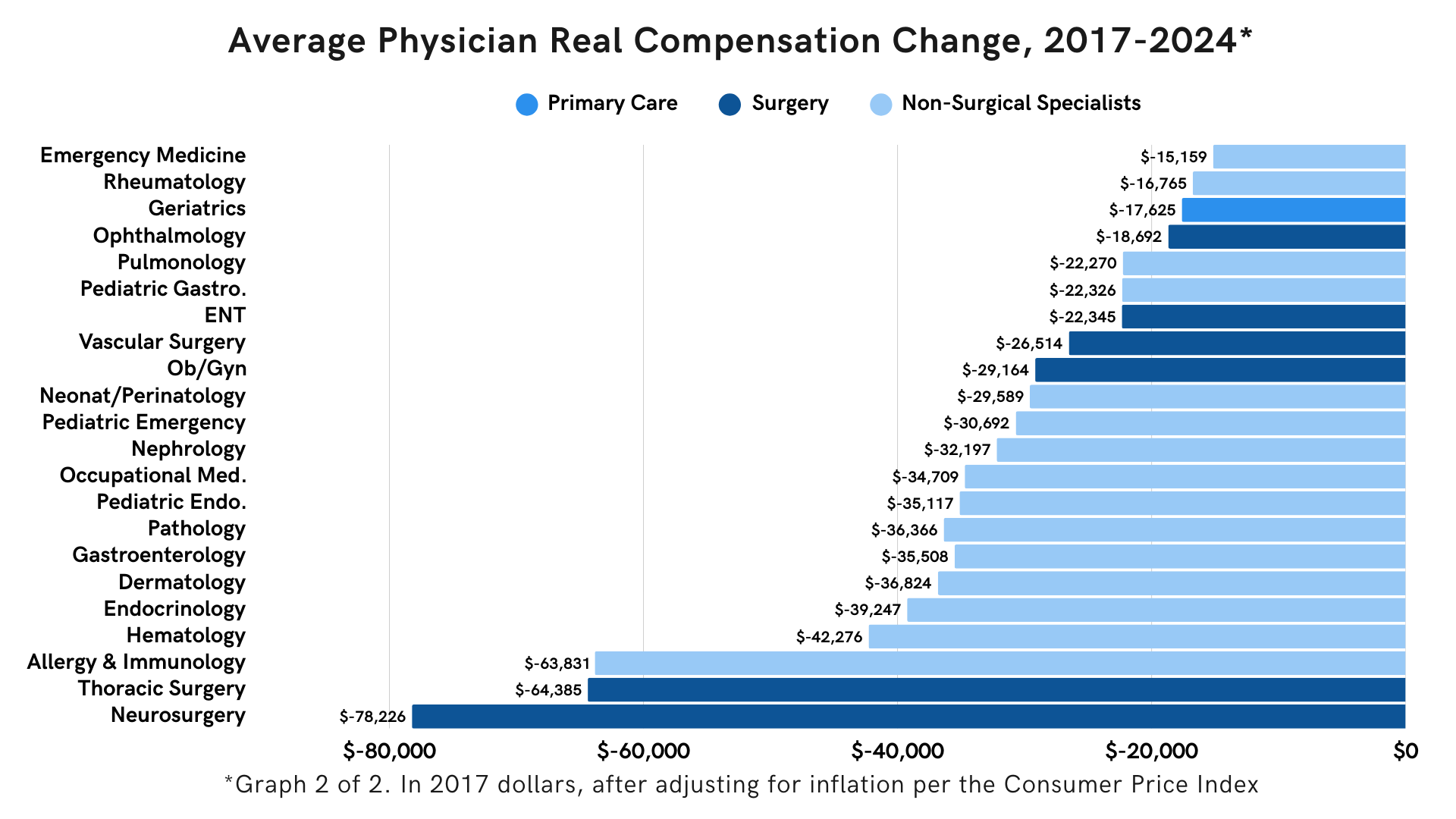Average physician pay in 2024 was $429,808, an increase of 3.7% from the prior year, according to Doximity’s 2025 Physician Compensation Report.
After factoring in inflation, however, physicians’ real income and purchasing power has actually decreased over the past seven years. Physician’s average real compensation was $335,365 in 2024 — down 2.3% from 2017, after adjusting for inflation per the U.S. Bureau of Labor Statistics’ Consumer Price Index (CPI).
The compensation report is based on surveys of more than 230,000 U.S. physicians who practice full-time, including more than 37,000 surveys completed between January and December 2024.

Pay by Specialty
Family medicine was one of the few specialties that saw a slight increase in real compensation. Average pay for family physicians was $318,959 in 2024. But after adjusting for inflation since 2017, real compensation was $248,873. This represents an increase in pay of 3.5% ($8,324) for family physicians relative to their pay in 2017.

Only five other specialties saw an increase in real compensation from 2017 to 2024: preventive medicine (4.4%), radiology (3.5%), plastic surgery (2.5%), urology (2.3%), and pediatric infectious disease (1.1%). For most of these specialties, the slight increase in real compensation stemmed largely from a pay boost over the past year.


Deep Commitment
The general pattern of lagging physician pay coincides with a run of high inflation in recent years as well as five consecutive years of Medicare reimbursement cuts, including a 2.83% cut in the physician fee schedule conversion factor that took effect on January 1, 2025.
Most physicians (60%) said they are either “concerned” or “very concerned” that these reimbursement pressures will affect their ability to care for Medicare and Medicaid patients in the next 12 months, according to one of the surveys in the compensation report. An even greater share of the physicians (81%) said that current reimbursement policy has contributed significantly to the decline of private practice.
Such financial challenges have further stressed a physician workforce facing a wide range of longstanding concerns, from overwork to clinical shortages.
Pediatric specialties and women physicians appear to have been hit particularly hard. Pediatrics saw one of the lowest growth rates in pay (2.2%) from the prior year. And the pay gap between pediatric and adult care specialties remained significant in 2024; pediatric oncology specialists, for example, earned about 96% less than adult oncology specialists.
The pay gap between women and men physicians also rose to 26% in 2024, compared with 23% in 2023. Women made $120,917 less than men on average, after adjusting for physician specialty, location, and years of experience.
And yet, despite facing significant financial and administrative pressures, the majority of physicians expressed a deep commitment to their work.
More than three-fourths (76%) of physicians surveyed said they would still choose to be a doctor if they had a chance to do it over again. In addition, 74% of pediatricians and pediatric specialists said they remain inspired to stay in pediatric care because of a strong sense of purpose or mission in caring for children.
While physicians await the system-level changes required to fully address the ongoing issues in their field, many have begun taking modest but meaningful steps toward change.
Some have leaned on workforce solidarity by joining unions, others have turned to moonlighting, and still others have found success by implementing telehealth or emerging technologies like artificial intelligence into their workflow. Finally, even where these efforts might fall short, the majority (77%) of physicians said they would be willing to accept lower compensation if it would bring them the level of work autonomy or work-life balance they need.
Main Image: z_wei / GettyImages







